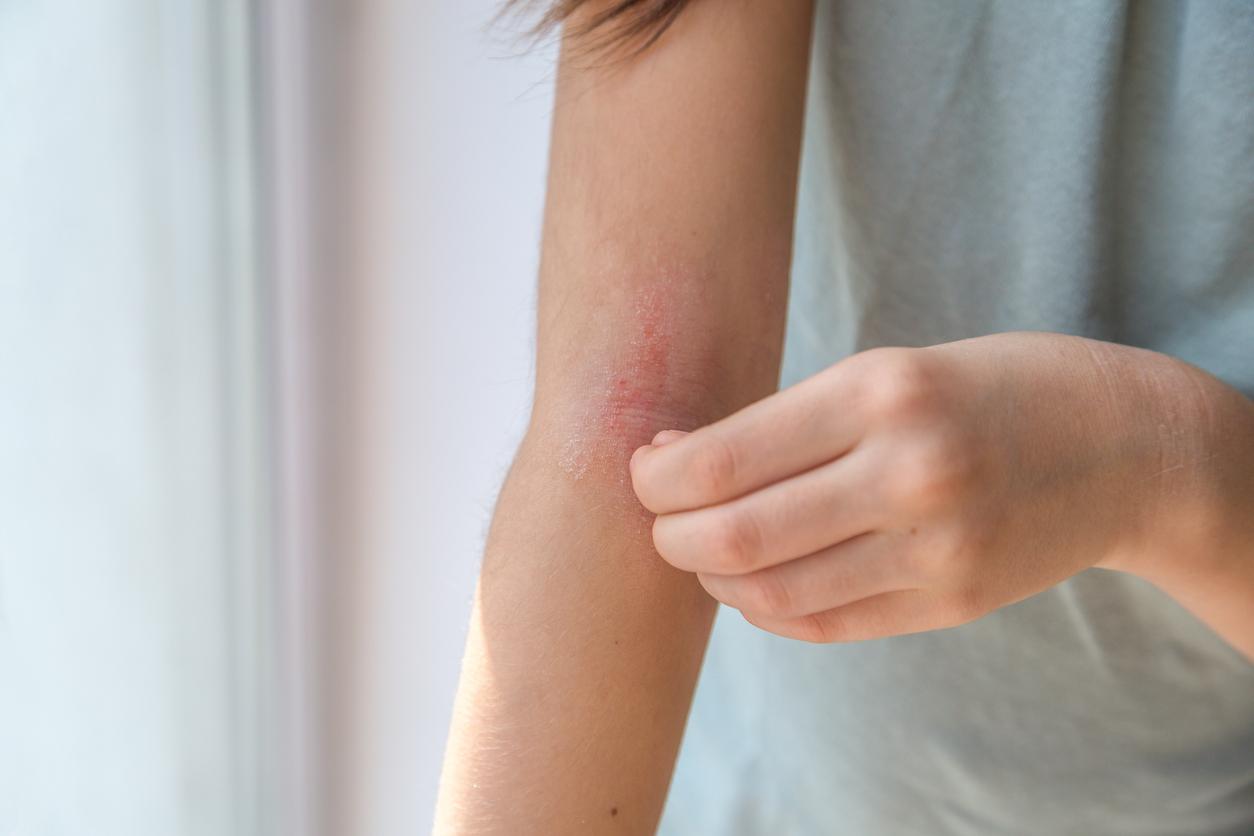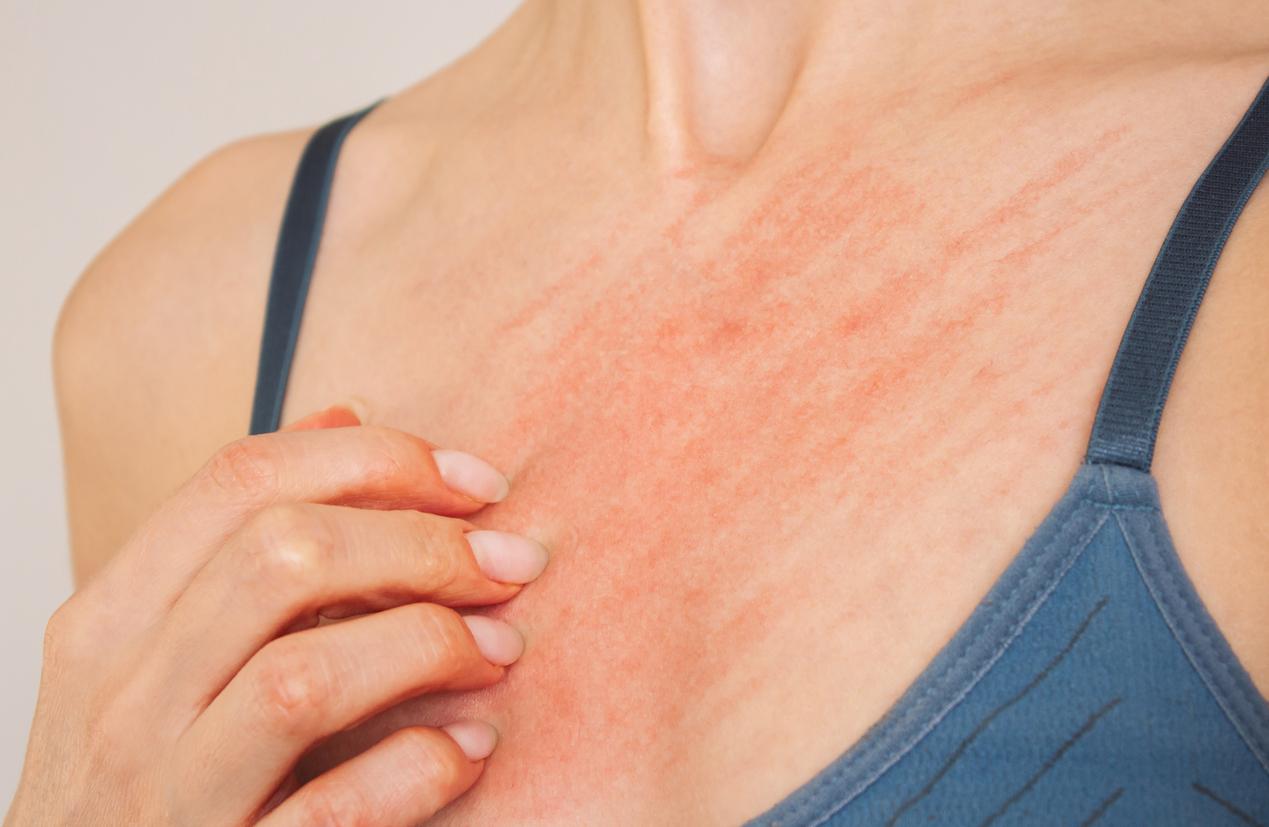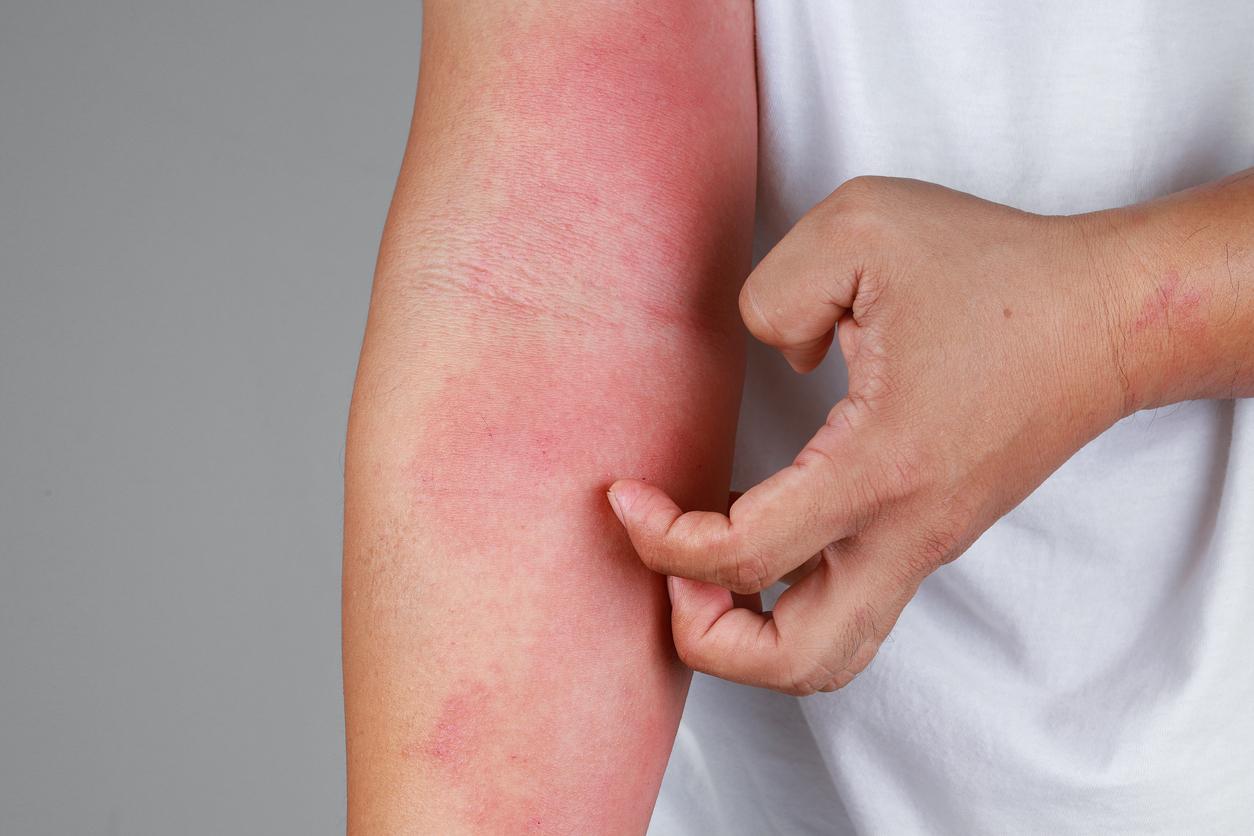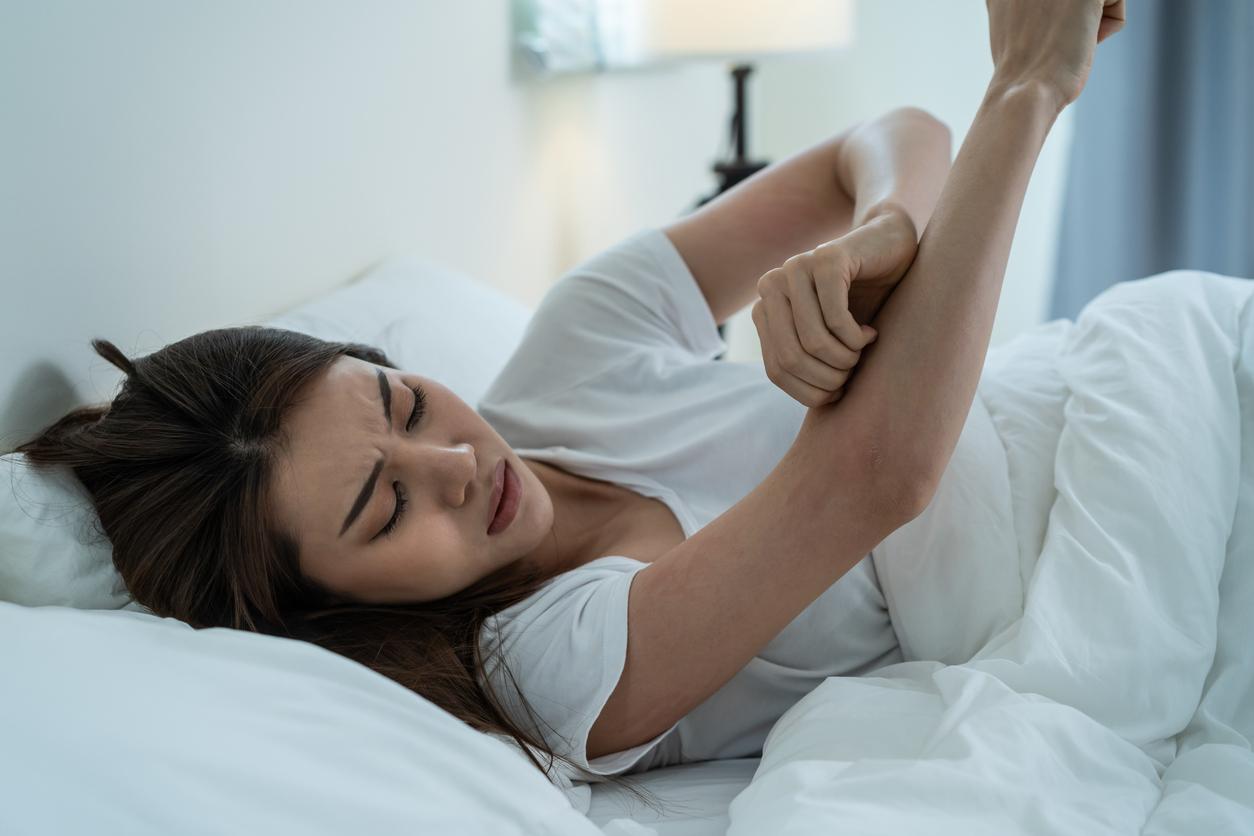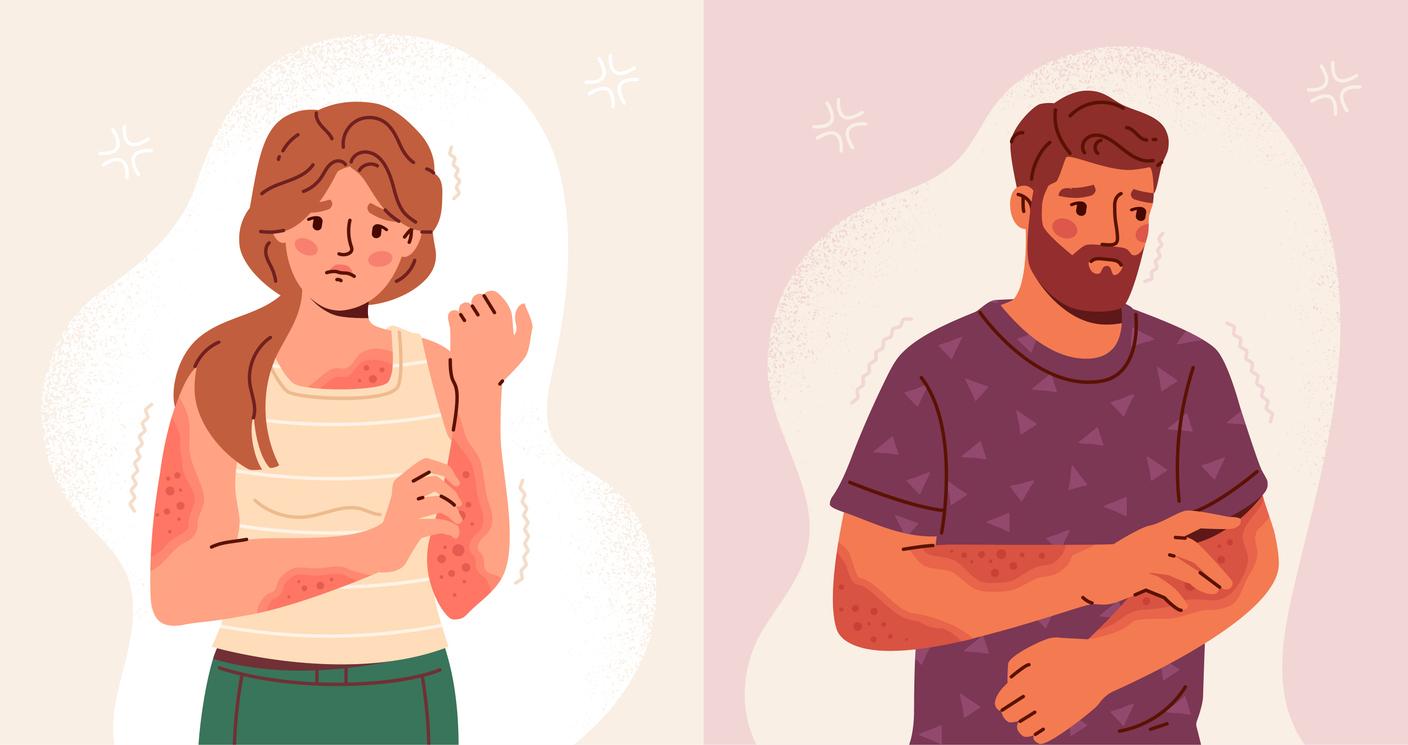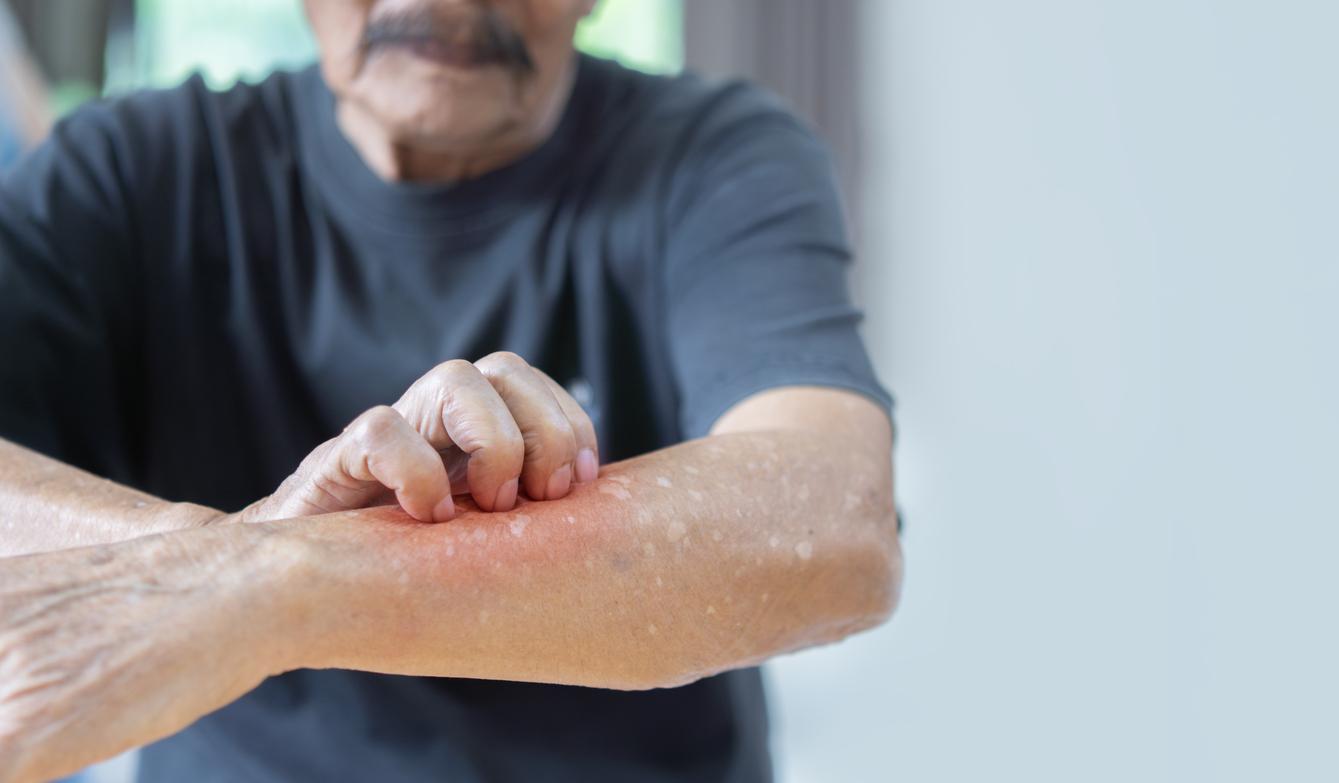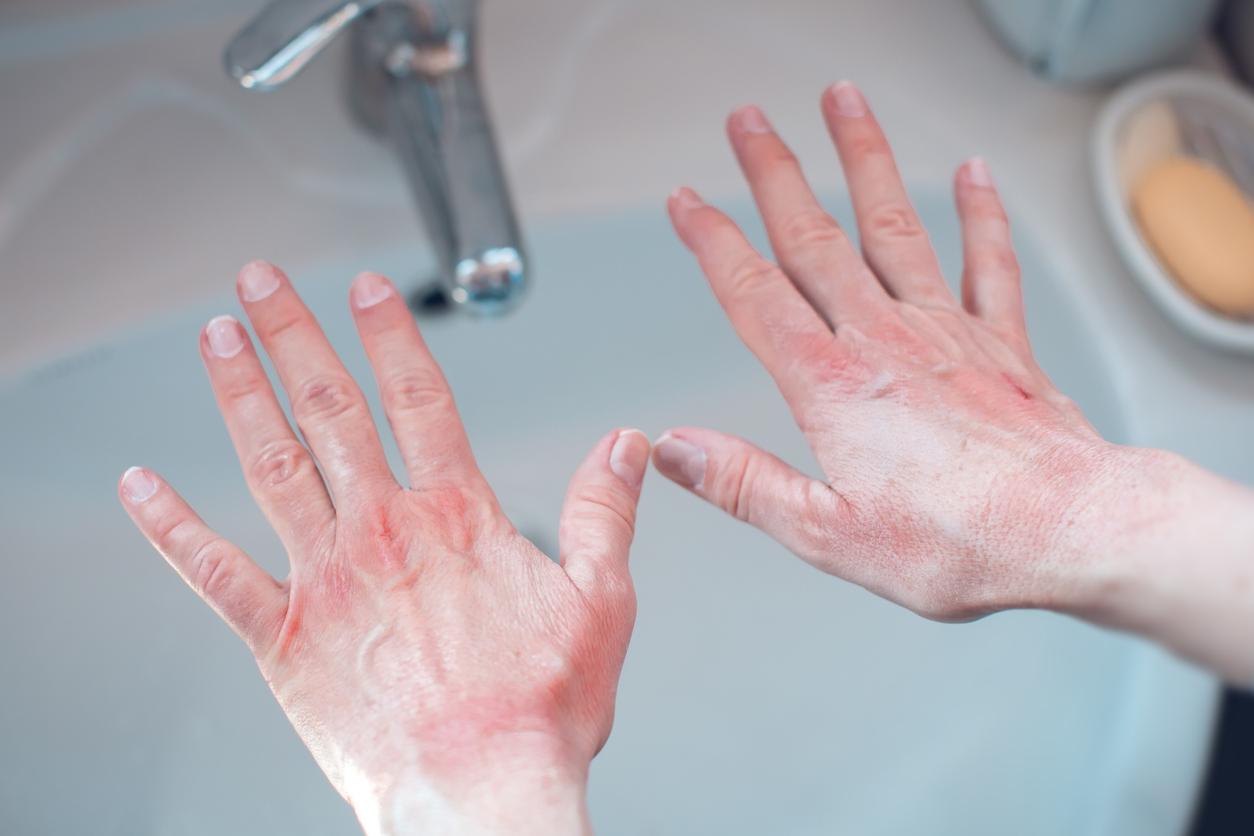Atopic dermatitis: how to spot it?
Eczema (atopic dermatitis editor’s note) affects 40% of adolescents and 30% of 6-7 year olds. It is estimated that between 1 and 3% of adults are affected by this skin disease. Eczema appears when the skin no longer plays its role as a barrier against external aggressions. Not only does water evaporate more easily from the epidermis, but irritating substances easily penetrate the skin
>> Read our special file on eczema
The symptoms are easily recognizable: the skin becomes red, it itches. Itching can cause cracks in the skin.
Eczema: the right care
While we do not know the exact cause of eczema, we do know that people whose family members have suffered from eczema, rhinitis, conjunctivitis, food allergy and/or asthma have greater risk of developing this disease.
Above all, the environment can aggravate skin dryness and cause inflammatory outbreaks: this is the case with allergens (dust, hair, animals), soap, detergents, irritants such as wool, sweat, and heat.
– Say goodbye to soaps and other cleansing products that strip the skin and deprive it of its protective layer. We choose specific hypoallergenic products that moisturize and reduce skin sensitivity. A rule to also apply when removing makeup.
-After the shower, wipe gently without rubbing then moisturize the skin with an emollient that softens the skin and makes it more waterproof.
-We frequently apply a moisturizer that protects the skin from dryness, such as the Cetaphil moisturizing emulsion from Restoradem (€20 for 295 ml) and the Trixera emollient cream from Avène for dry atopic skin (€14.35 for 200 ml ).
Eczema: the right steps to protect yourself
-We avoid long hot baths because otherwise the water irritates the skin. We prefer short showers at medium temperature.
– We wear clothes in smooth cotton and silk type fabric, less aggressive for the skin. Same for the bed sheets.
-We use a natural detergent without fabric softener
-To avoid scratching, keep nails short and filed. In the event of a severe crisis, we do not hesitate to put on cotton gloves or mittens.
– Carpets and rugs are often vacuumed to prevent the multiplication of dust mites. Children’s bed linen and stuffed animals are regularly washed.
– When you sweat after playing sports, for example, you sponge your sweat with a damp cloth to avoid excess heat which promotes irritation.
-We wear gold and silver jewelry and avoid nickel
>> Read also “Baby eczema: the right gestures”









